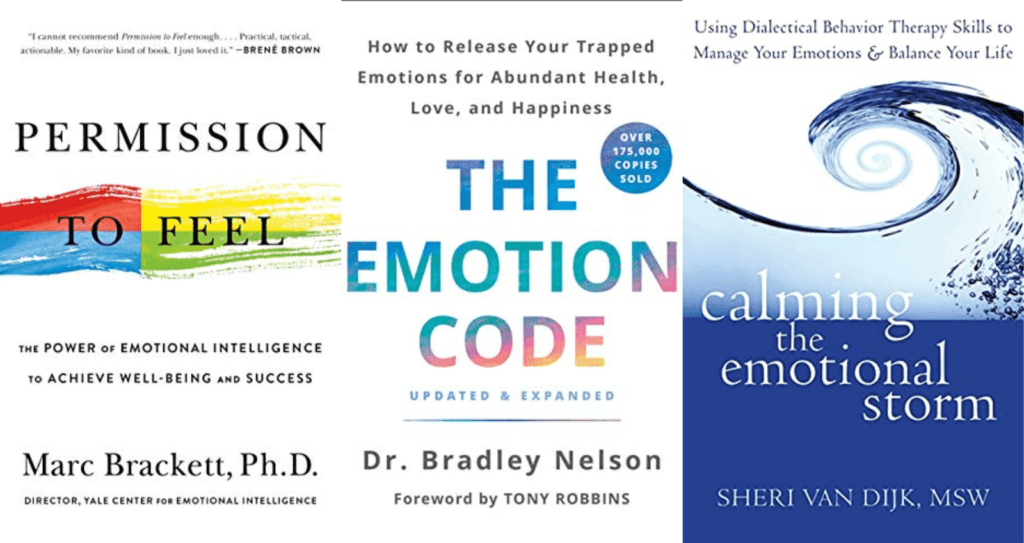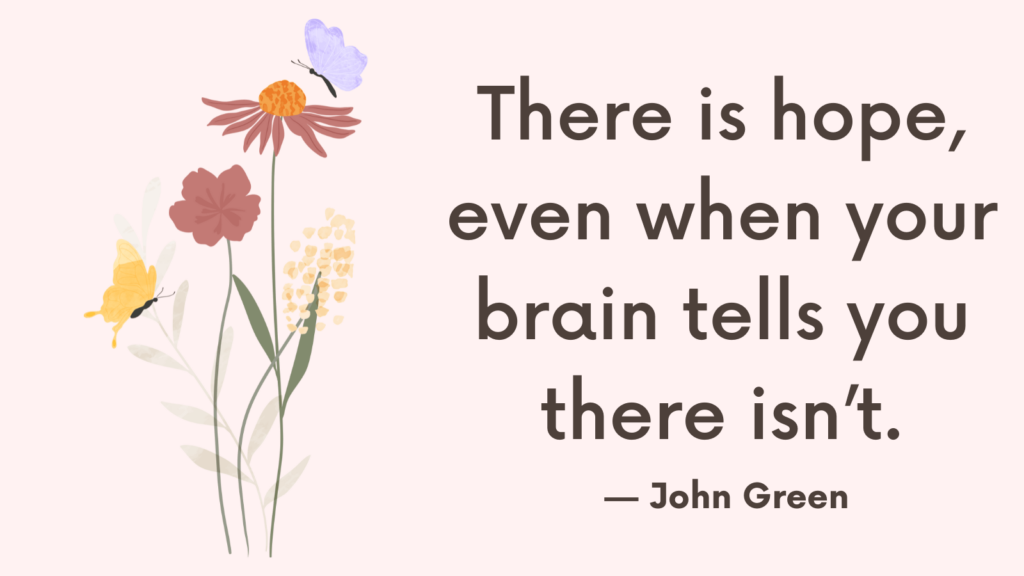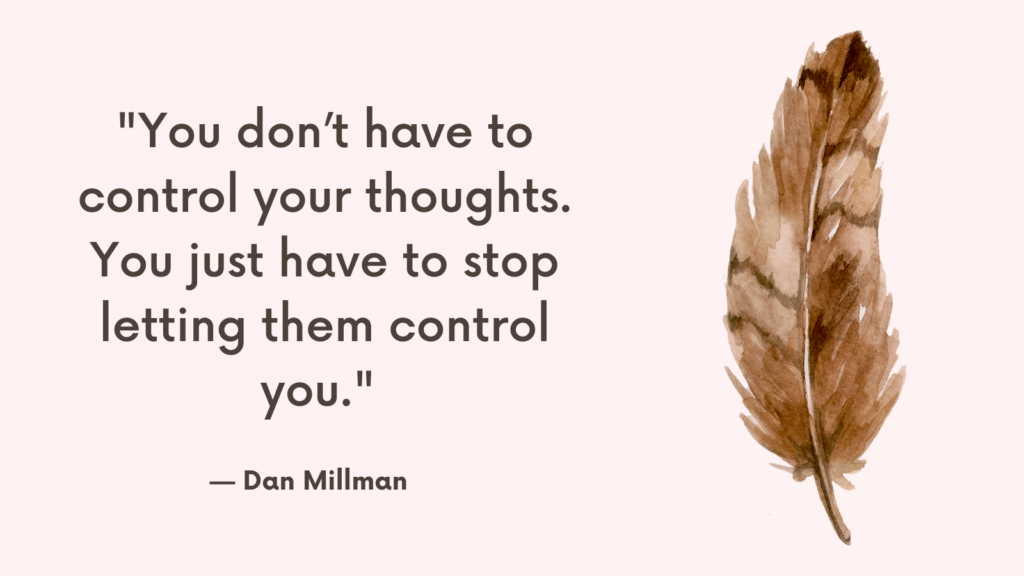The following are some of the best books on how to control your emotions.
Disclosure: Some of the links below are affiliate links. This means that, at zero cost to you, I will earn an affiliate commission if you click through the link and finalize a purchase.
Books On How To Control Your Emotions

1. Permission to Feel
By Marc Brackett
Marc Brackett is a professor in Yale University’s Child Study Center and founding director of the Yale Center for Emotional Intelligence. In his 25 years as an emotion scientist, he has developed a remarkably effective plan to improve the lives of children and adults – a blueprint for understanding our emotions and using them wisely so that they help, rather than hinder, our success and well-being. The core of his approach is a legacy from his childhood, from an astute uncle who gave him permission to feel.
Related: Best 99 Coping Skills (+FREE Coping Worksheets)

2. The Emotion Code
By Dr. Bradley Nelson
In this newly revised and expanded edition of The Emotion Code, renowned holistic physician and lecturer Dr. Bradley Nelson skillfully lays bare the inner workings of the subconscious mind. He reveals how emotionally-charged events from your past can still be haunting you in the form of “trapped emotions”―emotional energies that literally inhabit your body.
The Emotion Code is a powerful and simple way to rid yourself of this unseen baggage. Dr. Nelson’s method gives you the tools to identify and release the trapped emotions in your life, eliminating your “emotional baggage,” and opening your heart and body to the positive energies of the world.
Related: How To Feel Your Feelings? Top 9 Difficult Emotions To Cope With In Healthy Ways

3. Master Your Emotions
By Thibaut Meurisse
This book contains:
- 31 simple coping strategies
- How to make your emotions work FOR you.
- A formula to reprogram your mind
- A free downloadable workbook, and much, much more!
Related: Top 21 Emotional Writing Prompts To Process Emotions

4. The Language of Emotions
By Karla McLaren
Emotions―especially the dark and dishonored ones―hold a tremendous amount of energy. We’ve all seen what happens when we repress or blindly express them. With The Language of Emotions, empathic counselor Karla McLaren shows you how to meet your emotions and receive their life-saving wisdom to safely move toward resolution and equilibrium.
Related: The Difference Between Pain And Suffering (+Top 4 Tips On How To Embrace Pain & Stop Suffering)

5. Calming the Emotional Storm
By Sheri Van Dijk MSW
Calming the Emotional Storm is your guide to coping with difficult emotions calmly and responsibly by using powerful skills from dialectical behavior therapy. This method combines cognitive behavioral techniques with mindfulness practices to change the way you respond to stressful situations. By practicing these skills, you can stop needless emotional suffering and develop the inner resilience that will help you weather any emotional storm.
This book will teach you how to:
• Establish a balanced life for an everyday sense of well-being
• Let go of unwanted worries and fears
• Become better at accepting yourself and others
• Work through a crisis without letting emotions take over
Workbooks On How To Control Your Emotions

6. Your Emotions and You
By Suzette Bray LMFT
What sets this workbook apart from other books on untangling emotions and social emotional learning:
- Emotions 101—Learn what impacts emotions, how they can impact you, and how well you currently relate to yours.
- Build an emotional tool kit—Look inward to better understand your emotions using a wide range of exercises that will help you practice patience and self-compassion, including journaling, mindfulness, and gratitude.
- Work with your emotions—Deep dive into what triggers them, tips for managing them, and how to use your newfound knowledge to spur personal growth.
Related: Negative Core Beliefs List (& 8 Tips On How To Challenge Them)

7. The Dialectical Behavior Therapy Skills Workbook
By Matthew McKay PhD, Jeffrey C. Wood PsyD, Jeffrey Brantley MD
The Dialectical Behavior Therapy Skills Workbook, a collaborative effort from three esteemed authors, offers evidence-based, step-by-step exercises for learning these concepts and putting them to work for real and lasting change. Start by working on the introductory exercises and, after making progress, move on to the advanced-skills chapters. Whether you’re a mental health professional or a general reader, you’ll benefit from this clear and practical guide to better managing your emotions.

How Books On How To Control Your Emotions Can Help
Books on how to control your emotions can be incredibly helpful in a number of ways. Here are some ways they can assist you:
1. Understanding Emotions: These books can provide a comprehensive understanding of emotions and how they impact our daily lives. They explain the science behind emotions, helping you recognize the triggers that lead to certain emotional responses.
2. Emotional Intelligence: Books on managing emotions often focus on developing emotional intelligence. They teach you how to identify your emotions, understand their root causes, and express them in healthy ways. By enhancing your emotional intelligence, you can better manage your reactions and build healthier relationships with others.
3. Coping Strategies: These books offer a wide range of coping strategies to deal with negative emotions such as anger, stress, anxiety, and sadness. They provide practical techniques and exercises that help you regulate and control your emotional responses effectively.
4. Self-Reflection and Mindfulness: Many books on emotional control emphasize the importance of self-reflection and mindfulness. They guide you through exercises to develop self-awareness, allowing you to observe and analyze your emotions objectively. This helps you respond to situations rather than reacting impulsively.
5. Stress Reduction: Managing emotions is closely tied to stress reduction. These books often provide strategies to reduce stress levels and promote relaxation. Techniques like deep breathing exercises, meditation, and visualization can all be found in these resources.
6. Building Resilience: Emotional control books teach you how to build resilience and bounce back from difficult situations. They help you develop a positive mindset, learn from setbacks, and find ways to stay calm and resilient in challenging times.
7. Improved Communication: Controlling your emotions positively impacts your communication skills. These books guide you on expressing your emotions effectively, active listening, and empathizing with others. This strengthens your relationships and minimizes conflicts.
Conclusion
Books on emotional control can serve as guides during your journey, offering useful insights and strategies to help you develop healthier emotional responses.



